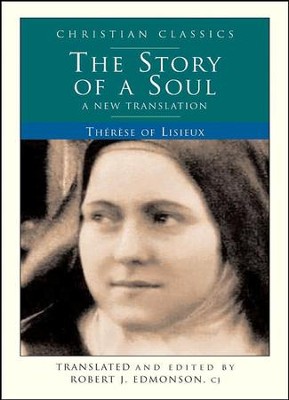


The sinner existentially experiences this meeting with Christ in the unmerited gifts of faith and baptism. Therese understood that Christ’s self-offering on Calvary constitutes our objective redemption. Paul, she understood justification as an intimate, transformational re-presentation of the Paschal Mystery in us that not only cleanses us of all sin and initiates the Divine Indwelling but also equips us for the ascetical and mystical life and makes us channels of Jesus’ redeeming love for others. 4Īlthough she did not possess the exact theological vocabulary to explain it fully, Therese displays profound insight into the dynamic divine-human synergy at work in the justification of a sinner. She had no doubt that Jesus knew her and loved her in an intimate and personal way in the Garden of Gethsemane and on Calvary. Paul’s words as her own: The life I now live in the flesh I live by faith in the Son of God who loved me and delivered himself up for me(Gal. He took every human sin to himself and suffered in place of the sinner. 2 For Therese, Christ saw, knew, and loved each of us in his passion.

However, there is often little or no advertence to the fact that the Divine Person of the Word-made-man knew the Father in such a unique way that, in that knowledge, he encountered every human being of every time and place. They explain that Jesus suffered a horrific death that was identical to the deaths of other men crucified by the Romans.Īdmittedly many, if not most, authors propose that Christ intentionally offered his sufferings in humble obedience to his Father’s will for the salvation of all people. Today, while many theologians and popular preachers profess belief in this truth, they nevertheless do not draw out the logical consequences of the dogma. Therese’s theology of redemption is the dogmatic fact that Jesus Christ, a Divine Person, became man and died on a cross to restore the gift of grace, that is, eternal life with God, to all people. 1 In her inimitable style, she presented the mystery of human salvation in terms of a personal encounter of each Christian with the Crucified God who draws men and women to himself and into his love for all who are alienated from him through sin.Īt the center of St. Therese of Lisieux reveals profound insight into Christ’s passion as the ultimate revelation of God’s love. In her Story of a Soul and other writings, St.


 0 kommentar(er)
0 kommentar(er)
